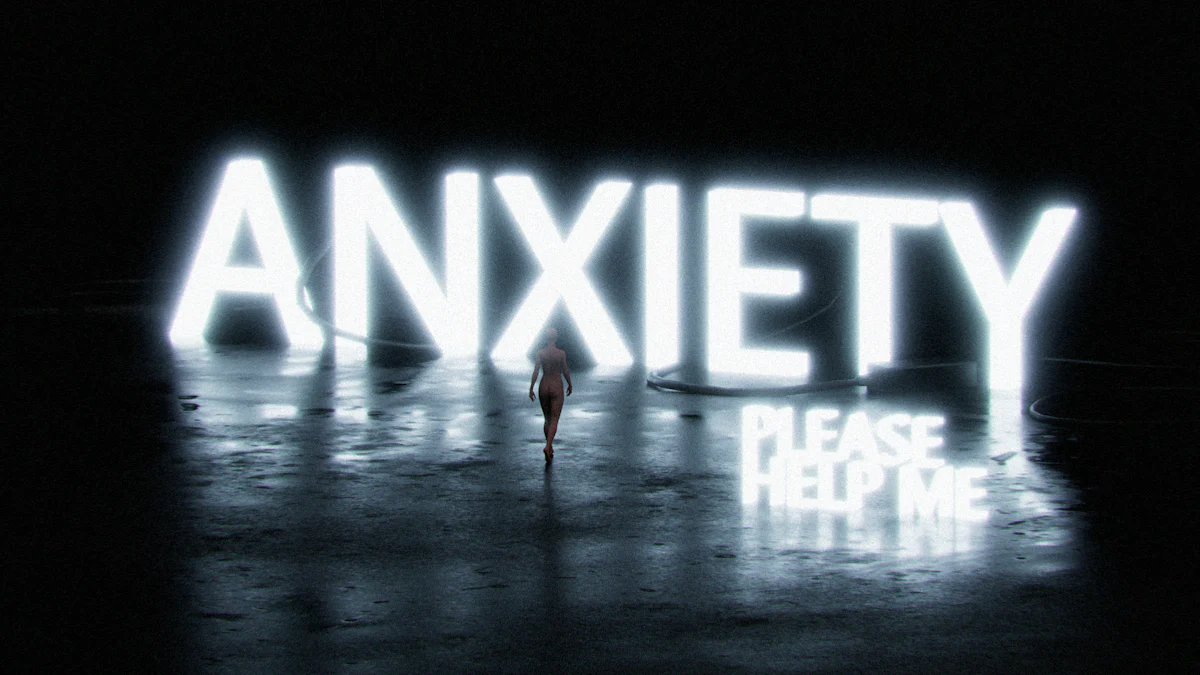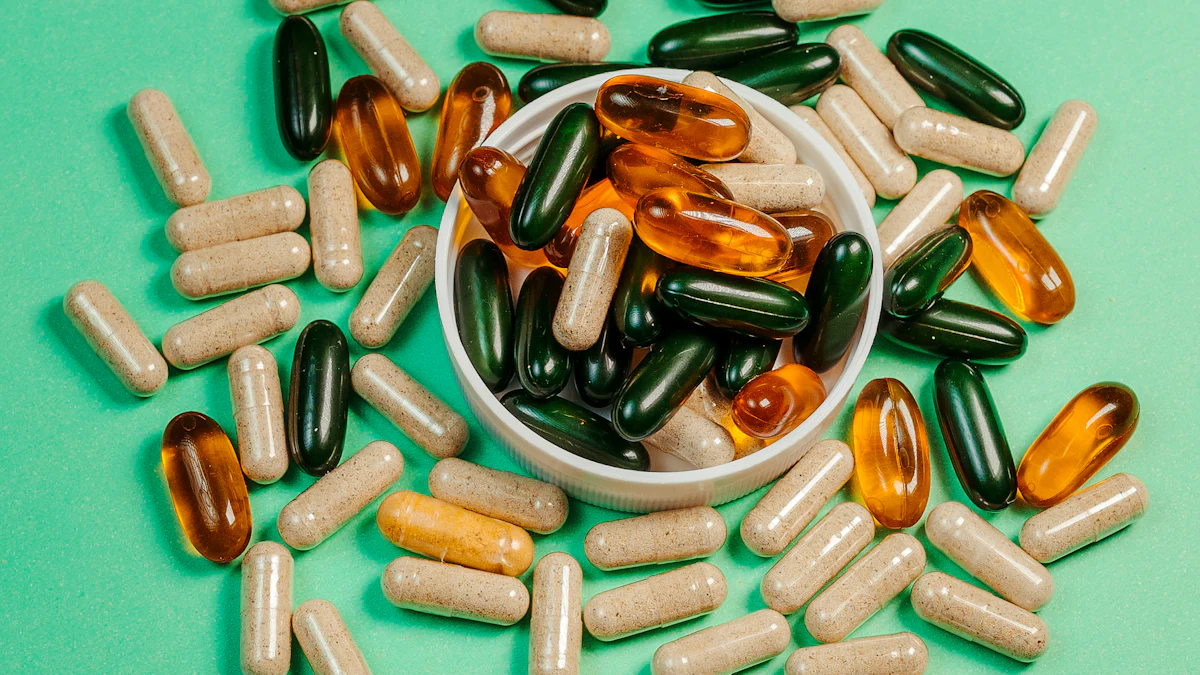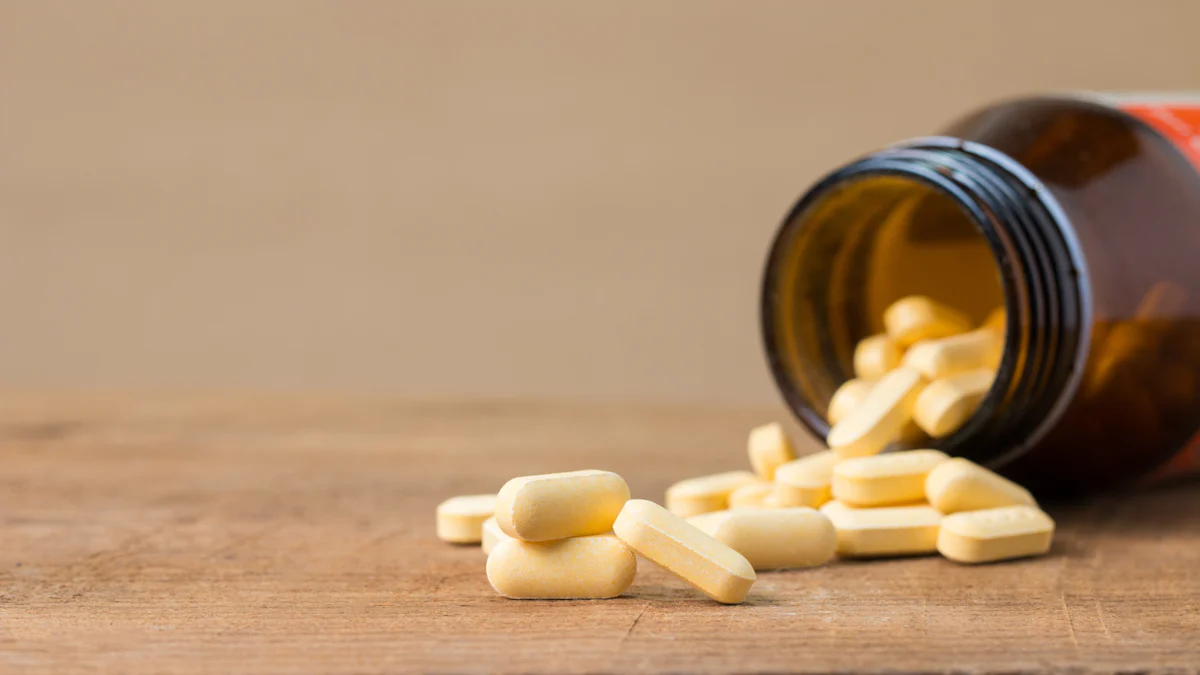
Understanding Anxiety and Depression
Anxiety and depression are prevalent mental health conditions that can significantly impact an individual's overall well-being. Understanding the distinct effects of these disorders is crucial in identifying appropriate strategies for managing their symptoms.
The Impact of Anxiety on Your Life
Anxiety disorders affect approximately 4.05% of the global population, according to a scientific brief released by the World Health Organization. These disorders can lead to various health issues, including hypertension, cardiovascular disease, and dementia. Additionally, individuals with anxiety may experience heightened stress levels due to factors such as loneliness, fear of infection, grief after bereavement, and financial worries. The prevalence rates of anxiety disorders vary across different regions, with reported cases ranging from 7,144 to 8,671 per 100,000 population. It's important to recognize that anxiety can also contribute to an increased risk of smoking among affected individuals.
Fact: Research has found a strong correlation between anxiety disorders and cardiovascular disease.
How Depression Affects You Differently
Depression is known to negatively impact cortisol levels in the body. Typically, a normal cortisol cycle peaks in the morning to prepare an individual for the day ahead but tapers off as the day progresses. However, individuals with depression may experience disruptions in this cycle, leading to adverse effects on their mood and energy levels.
Moreover, anxiety disorders often coexist with depression. Studies have shown that smoking is more prevalent among adults with mental health conditions such as depression and anxiety compared to the general population. This highlights the interconnected nature of these mental health challenges and emphasizes the need for comprehensive support systems.
Fact: Loneliness, fear of infection, suffering and death for oneself and loved ones have been cited as stressors leading to anxiety and depression.
In navigating through this guide on natural supplements for anxiety and depression management, it's essential to recognize how these conditions manifest differently in individuals' lives. By understanding their distinct impacts on mental and physical well-being, we can effectively explore suitable interventions tailored to each condition's specific needs.
Identifying the Right Supplements for You
When it comes to managing anxiety and depression, natural supplements can play a crucial role in supporting mental health. Understanding the distinct benefits of these supplements and how they compare to traditional medication is essential for making informed choices.
The Role of Supplements in Mental Health
Supplements vs. Medication: What You Need to Know
Supplements offer a complementary approach to traditional medication for managing anxiety and depression. While pharmaceutical agents are often prescribed to alleviate symptoms, dietary supplements provide an alternative route that focuses on holistic well-being. Unlike pharmaceutical drugs, dietary supplements are regulated as foods rather than drugs, which means they cannot be marketed with claims of treating, diagnosing, preventing, or curing a disease. This distinction emphasizes the importance of consulting healthcare professionals before incorporating supplements into your wellness regimen.
In contrast, existing treatments for anxiety typically involve a combination of medication and psychotherapy. However, natural supplements present an opportunity to explore additional supportive measures that align with individual preferences and needs.
Key Difference: Dietary supplements are regulated under the general umbrella of foods, not drugs.
How to Choose Quality Supplements
When considering natural supplements for anxiety and depression relief, it's crucial to prioritize quality and efficacy. Scientific investigations of supplements begin with observational studies that compare the health status of individuals taking specific supplements with those who do not. Subsequently, randomized clinical trials provide further insights into their effectiveness.
As you navigate through various supplement options, look for products supported by robust research and positive reviews from reputable sources. Additionally, accessing reliable information about dosage recommendations is vital for ensuring safe and effective use.
Key Insight: More than 30 clinical trials have tested different omega-3 preparations in people with depression.
Avoiding Supplements That May Worsen Anxiety
While natural supplements can offer valuable support for mental health, it's important to be mindful of potential adverse effects. Certain supplements may exacerbate anxiety symptoms or interact negatively with existing medications. Therefore, it's advisable to consult healthcare professionals before introducing new supplements into your routine.
By being aware of potential contraindications and understanding how different supplements may affect your unique biochemistry, you can make informed decisions that prioritize your well-being.
In navigating the landscape of natural supplements for anxiety and depression management, it's essential to recognize the distinctive role they play in promoting mental health while being mindful of potential risks associated with their use.
Comparative Data:
-
Use bold for comparing entities (e.g., products).
-
Lists to itemize differences or similarities.
-
Use italic for highlighting key comparative insights.
-
Inline
codefor specific metrics or data points.
Key Supplements for Easing Anxiety

When it comes to managing anxiety, natural supplements offer a range of options that can provide relief and support mental well-being. Understanding the benefits of these key supplements is essential for individuals seeking to ease their anxiety symptoms and improve their overall quality of life.
Magnesium: The Calming Mineral
Magnesium is a vital mineral that plays a crucial role in various bodily functions, including muscle and nerve function. Research has shown that magnesium also has calming properties, making it an essential supplement for individuals experiencing anxiety. Studies have highlighted its potential to regulate brain chemical activity and improve sleep quality, ultimately contributing to stress and anxiety relief.
L-Theanine: From Green Tea to Anxiety Relief
Derived from green tea, L-Theanine has gained attention for its clinical properties in managing anxiety and stress. Scientific research has demonstrated its ability to improve sleep quality, regulate brain chemical activity, and relieve stress and anxiety. This natural supplement offers a holistic approach to easing anxiety symptoms while promoting relaxation and mental well-being.
Herbal Helpers: Chamomile, Lavender, and Lemon Balm
Chamomile: A Gentle Anxiety Reducer
Chamomile is renowned for its gentle yet effective properties in reducing anxiety. With its soothing qualities, chamomile can promote relaxation and calmness, making it an ideal choice for individuals seeking natural remedies for anxiety relief.
Lavender: The Scent of Calm
The captivating scent of lavender not only delights the senses but also holds remarkable stress-relieving properties. Incorporating lavender as a natural supplement can help alleviate anxiety symptoms while promoting a sense of tranquility and emotional balance.
Lemon Balm: Reducing Stress and Promoting Sleep
Lemon balm, with its citrusy aroma, offers valuable support in reducing stress levels and promoting restful sleep. This natural supplement provides a multifaceted approach to easing anxiety by addressing both stress reduction and improved sleep quality.
In exploring these key supplements for easing anxiety, individuals can leverage the diverse benefits offered by magnesium, L-Theanine, chamomile, lavender, and lemon balm to support their mental well-being naturally.
CBD and Ashwagandha: Modern Supplements For Anxiety
In the realm of natural supplements for anxiety, CBD and Ashwagandha have emerged as modern remedies with promising stress-relieving properties. These supplements offer a contemporary approach to managing anxiety symptoms and promoting overall mental well-being.
CBD: Calming Effects Backed by Research
CBD, short for cannabidiol, has garnered significant attention for its potential in alleviating anxiety and stress. Scientific research has highlighted its calming effects on the central nervous system, offering individuals a natural means of finding relief from anxiety-related symptoms. Studies have shown that CBD interacts with the endocannabinoid system, which plays a crucial role in regulating various physiological and cognitive processes, including mood regulation.
Moreover, CBD's anxiolytic properties have been demonstrated in clinical settings, showcasing its potential to reduce stress levels and promote relaxation. This supplement presents individuals with a non-intoxicating alternative derived from the cannabis plant, providing a holistic approach to addressing anxiety symptoms without inducing psychoactive effects.
Ashwagandha: The Adaptogenic Ally
Ashwagandha, also known as Withania somnifera, is an adaptogenic herb deeply rooted in traditional Ayurvedic medicine. Its adaptogenic properties enable it to support the body's natural ability to cope with stressors and promote overall balance. Clinical studies have indicated that Ashwagandha can modulate the body's response to stress by regulating cortisol levels, thereby mitigating the physiological impact of chronic stress on mental well-being.
Furthermore, Ashwagandha has been associated with improvements in anxiety symptoms and overall mood management. Its ability to enhance resilience against stressors makes it a valuable addition to natural interventions for individuals seeking comprehensive support for their mental health.
By incorporating CBD and Ashwagandha into your wellness regimen under professional guidance, you can leverage their modern therapeutic benefits in managing anxiety while prioritizing your overall mental well-being.
Essential Supplements for Depression

Depression can significantly impact an individual's mental and physical well-being, making it essential to explore natural supplements that support overall health and mood management.
Vitamin B Complex: The Mood Boosters
Vitamin B complex encompasses a group of essential nutrients that play a pivotal role in supporting brain health and emotional well-being. This group includes B vitamins such as B1 (thiamine), B6 (pyridoxine), B9 (folate), and B12 (cobalamin). Research has highlighted the significance of these vitamins in neuronal function, neurotransmitter synthesis, and overall cognitive performance. Furthermore, deficiencies in these vitamins have been linked to symptoms of depression, emphasizing the importance of maintaining adequate levels for optimal mental health.
Studies have demonstrated that Vitamin B complex supports brain health by contributing to the production of neurotransmitters such as serotonin and dopamine, which are crucial for regulating mood. Additionally, these vitamins play a vital role in mitigating oxidative stress and reducing inflammation within the brain, further promoting mental well-being.
Incorporating Vitamin B complex into your dietary regimen can provide comprehensive support for managing depressive symptoms while enhancing overall brain function and emotional balance.
Omega-3 Fatty Acids: Brain Food for Depression Relief
Omega-3 fatty acids, particularly eicosapentaenoic acid (EPA) and docosahexaenoic acid (DHA), are renowned for their neuroprotective properties and their potential to alleviate symptoms of depression. These essential fatty acids are integral components of cell membranes in the brain, influencing various neurological processes associated with mood regulation and cognitive function.
Scientific research has elucidated the link between omega-3s and mood improvement, underscoring their role in modulating neurotransmitter activity and reducing inflammatory responses within the central nervous system. Studies have also indicated that individuals with depression may have lower levels of omega-3 fatty acids, further emphasizing the significance of incorporating these essential nutrients into their wellness regimens.
By integrating omega-3 fatty acids into your diet through sources such as fish oil or algae-based supplements, you can provide your brain with the necessary building blocks for maintaining optimal mental health while alleviating symptoms of depression.
Supplement for Depression: St. John's Wort and SAMe
St. John's Wort: A Natural Antidepressant
St. John's Wort, derived from Hypericum perforatum, is a popular herbal remedy known for its antidepressant properties. Clinical studies have demonstrated its efficacy in managing mild to moderate depressive symptoms by modulating neurotransmitter activity within the brain. This natural supplement acts on pathways associated with serotonin reuptake inhibition, akin to conventional antidepressant medications but with potentially fewer side effects.
Moreover, St. John's Wort has been recognized for its ability to enhance neuroplasticity – the brain's capacity to adapt and reorganize – thereby promoting resilience against stressors that contribute to depressive episodes.
SAMe: Supporting Mental Well-being
S-adenosyl-L-methionine (SAMe) is a naturally occurring compound involved in various biochemical processes within the body, including neurotransmitter synthesis and methylation reactions crucial for DNA regulation. Clinical evidence suggests that SAMe supplementation can effectively support mental well-being by influencing neurotransmitter balance and promoting emotional stability.
Research findings indicate that SAMe exhibits antidepressant properties by modulating serotonin levels in a manner similar to conventional selective serotonin reuptake inhibitors (SSRIs). Furthermore, SAMe has shown promise in addressing treatment-resistant depression cases where individuals do not respond adequately to standard antidepressant therapies.
Incorporating St. John's Wort or SAMe under professional guidance can offer valuable support for individuals seeking natural interventions to manage depressive symptoms while prioritizing their overall mental health.
Safe Practices and When to Seek Professional Help
Navigating the world of supplements safely is essential for individuals seeking natural interventions for anxiety and depression management. Understanding the dosage, potential interactions, and side effects associated with these supplements is crucial in ensuring their safe and effective use.
When incorporating natural supplements into your wellness regimen, it's important to adhere to recommended dosage guidelines provided by healthcare professionals or reputable sources. Dosage recommendations may vary based on factors such as age, existing health conditions, and individual biochemistry. By following appropriate dosage instructions, you can optimize the benefits of these supplements while minimizing the risk of adverse effects.
Interactions between supplements and other medications or substances should be carefully considered to avoid potential complications. Certain supplements may interact with prescription medications, leading to adverse reactions or reduced efficacy of either substance. It's advisable to consult healthcare professionals or pharmacists to assess potential interactions before introducing new supplements into your routine.
Moreover, being mindful of possible side effects associated with natural supplements is essential for proactive management of your well-being. While many supplements offer valuable support for anxiety and depression relief, they may also present mild side effects such as digestive discomfort or allergic reactions in some individuals. Monitoring your body's response to these supplements and seeking professional guidance if you experience concerning symptoms is paramount in ensuring their safe usage.
Recognizing When Supplements Aren't Enough
While natural supplements can offer significant support for managing anxiety and depression symptoms, it's important to recognize when additional interventions are necessary. In cases where symptoms persist or significantly impact daily functioning despite supplement use, seeking professional guidance becomes imperative.
The Importance of Professional Guidance
Professional guidance from healthcare providers specializing in mental health can provide comprehensive assessment and personalized recommendations tailored to your specific needs. Healthcare professionals can conduct thorough evaluations to determine the most suitable treatment approaches based on your individual circumstances.
Additionally, professional guidance extends beyond traditional interventions to encompass modern solutions such as Online Therapy. Engaging in Online Therapy offers individuals convenient access to mental health support from licensed professionals through virtual platforms. Reviews of Online Therapy services can provide insights into the effectiveness and satisfaction levels reported by individuals who have utilized these resources.
By recognizing when supplemental support may not suffice and seeking professional guidance that encompasses a wide range of interventions including Online Therapy, individuals can proactively address their mental health needs while prioritizing their overall well-being.
